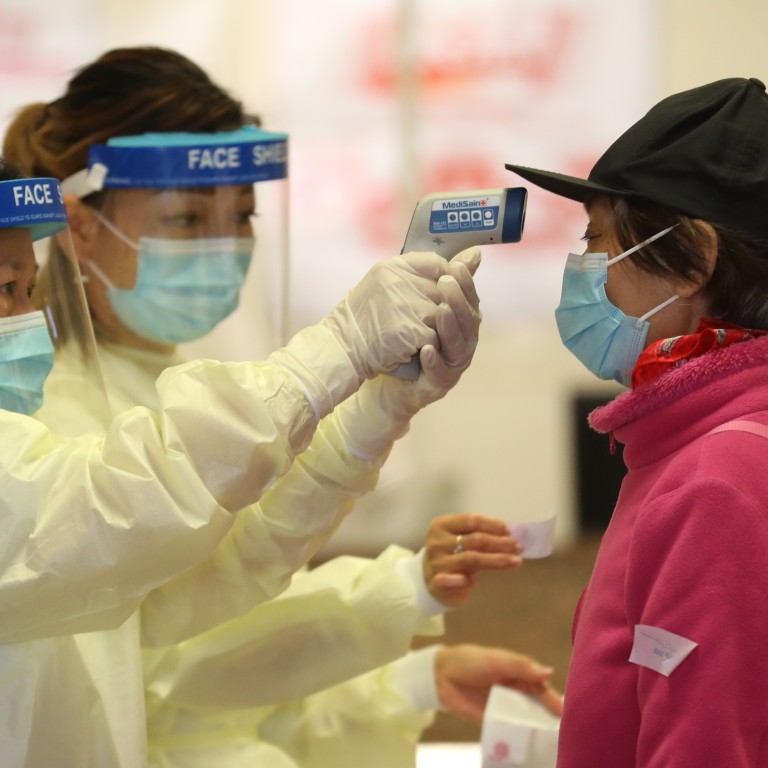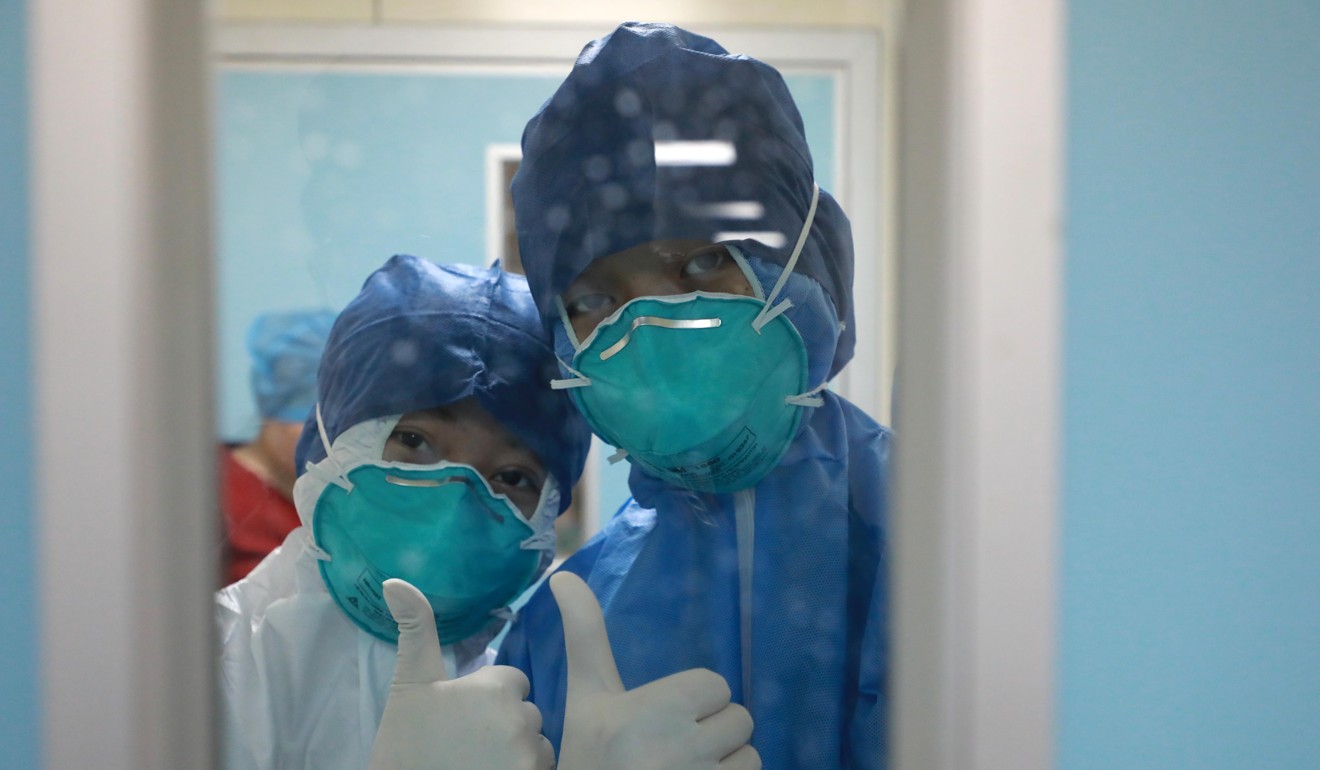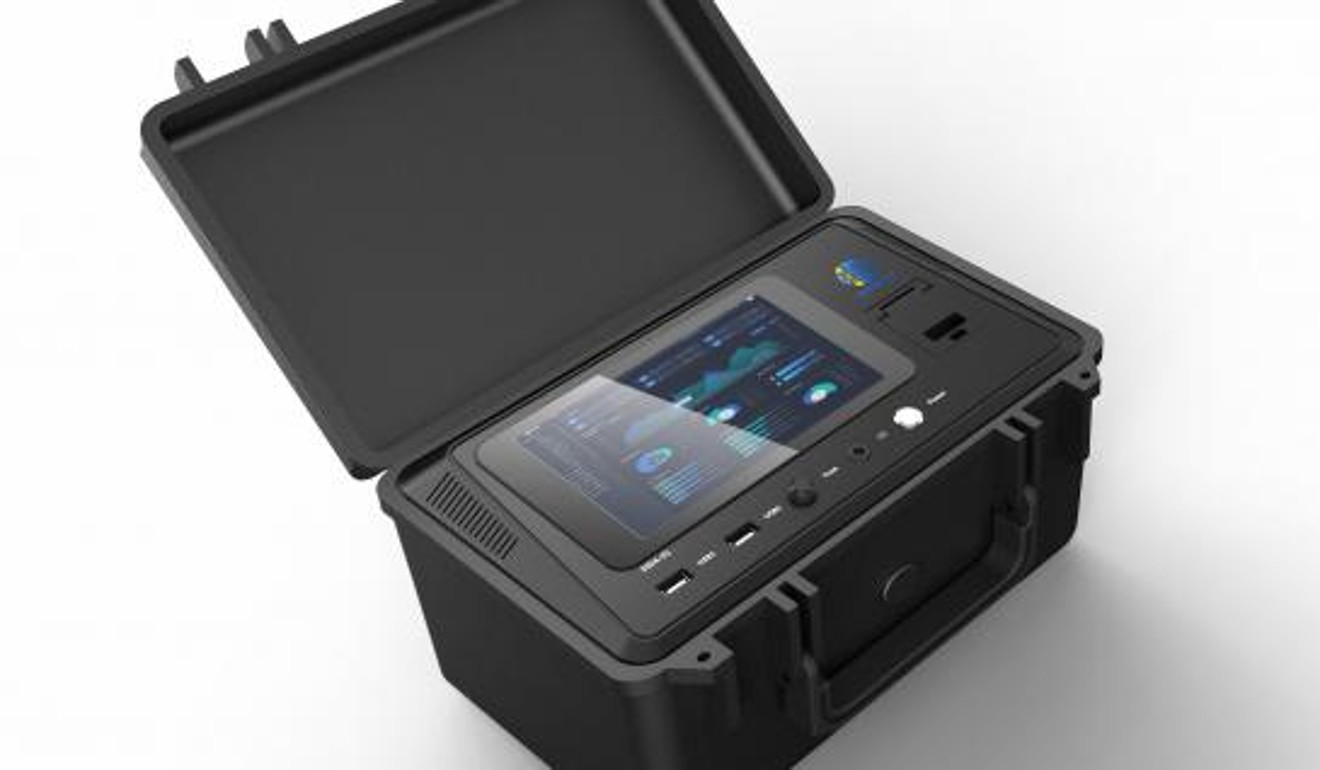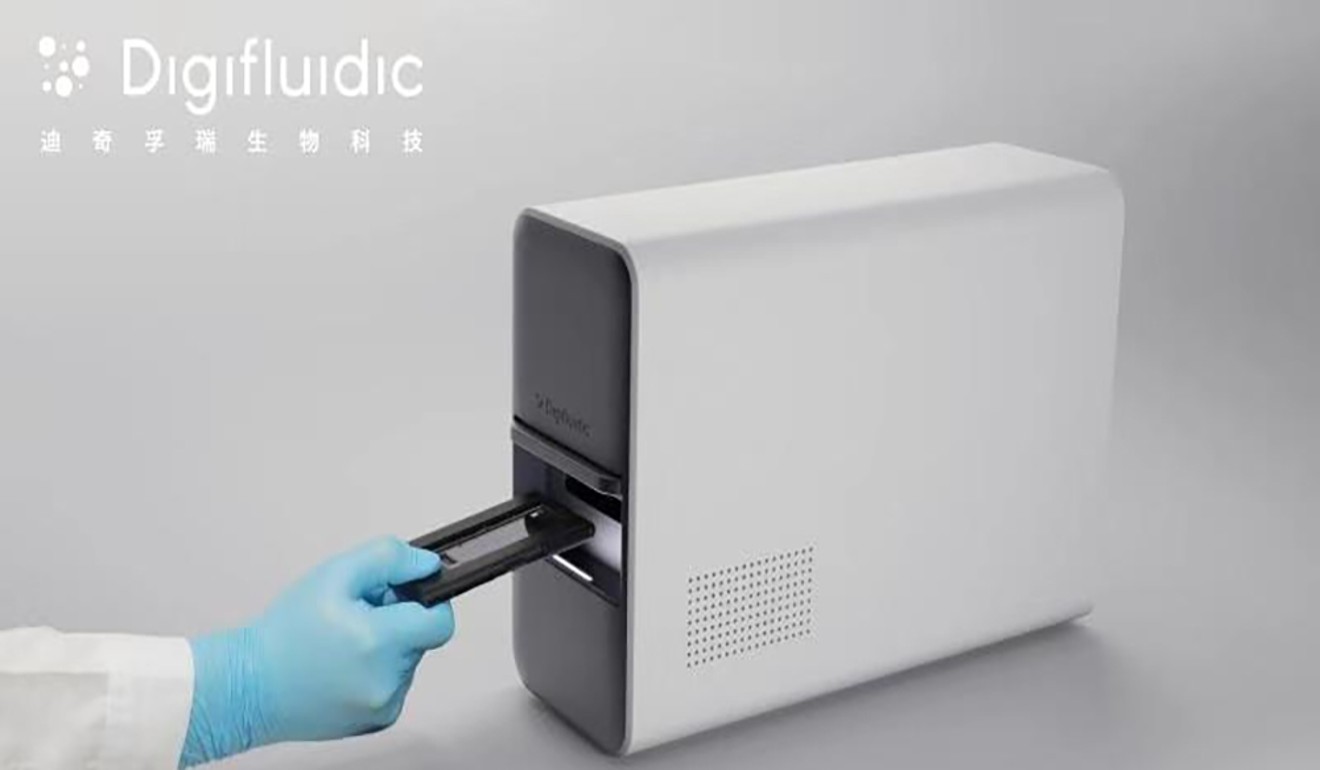
Coronavirus game changers? Hong Kong, Macau universities are developing tests that work in less than an hour
- Slow screening processes have hampered the fight against the coronavirus outbreak
- But teams at universities in Hong Kong and Macau are working on portable, rapid detection devices that offer results in as little as 30 minutes
As researchers and doctors around the world scramble to get to grips with the coronavirus crisis, which has sickened more than 28,000 people, tests that can diagnose the deadly virus in less than an hour are beginning to emerge.
A research team from the Hong Kong University of Science and Technology said on Thursday it had invented a portable detection device that can give a diagnosis in coronavirus cases in 40 minutes, while the University of Macau is working on a kit that may be able to detect the virus in less than 30 minutes, even at early stages of infection.
Coronavirus: still in the mood for bat? At this ‘Extreme Market’ it’s on the menu
News reports coming out of Hubei – the Chinese province at the epicentre of the outbreak – suggest the situation has been made worse by a slow and complex screening system, as well as a shortage of test kits. This has meant many sick patients fail to get a diagnosis and are turned away by overstretched hospitals.
Other cities, such as Hong Kong, are struggling to deal with dozens of screenings a day, as traditional testing methods usually take several hours.

Malik Peiris, chairman of virology at the University of Hong Kong, who has developed a test for the virus, said several research groups were trying to come up with rapid diagnostic tests.
“Such rapid tests would be very useful,” he said. “However, it is essential to evaluate them to assess that they are as sensitive as the conventional tests currently being used. Otherwise we will have false negative tests, which will result in missing infected patients, which is not acceptable.”
If the new coronavirus doesn’t get you, fake, racist news about it might
Ian Mackay, a virologist at the University of Queensland in Brisbane, was similarly cautious, saying tests may need to be repeated depending on how sensitive they were and how well validated on real-world human samples. “Even lab-based testing can sometimes return a negative result when someone is truly infected. Then a repeat sample, or perhaps a sample from a different site, is required,” he said.
A spokesman for the Hong Kong University of Science and Technology said that a team led by Weijia Wen, professor of the university’s physics department, came up with a testing kit within a week of obtaining the new coronavirus sequence on January 20.

The kit works by analysing a sample of the patient’s nasal cavity and offers a result in about 40 minutes. The light and portable detection device could test up to eight samples simultaneously, the spokesman said.
The new kit is qualified for export to European Union countries and is already being used by the Centres for Disease Control and Prevention in Shenzhen as well as in Guangzhou, in Guangdong province.
According to the researchers, the device is suitable for use by customs officers, border control inspectors, quarantine departments and even elderly homes.

The University of Macau is working on a similar test kit.
“We have been verifying the accuracy of the product with 2019-nCoV samples [the formal name of the new coronavirus] since this week. It is still too early to define the final accuracy, but the initial results are already encouraging,” said Rui Martins, director of the University of Macau’s State Key Laboratory of Analog and Mixed-Signal VLSI.
The new system, which has been named ‘Virus Hunter’, was developed to detect all types of viruses, including HIV and Hepatitis B, but is being fine-tuned to detect the coronavirus.
According to Martins, the test kit – expected to be available in one or two months – works by collecting samples of a person’s nasal mucous, which is then placed in a detection chip. The chip is then read by a machine that delivers the final result.

“It is a very advanced and innovative system that transforms and downsizes a conventional bio-lab room into a chip, like the iPhone does to an old computer,” the university’s vice-rector for global affairs said.
The kit is being tested by a Centre for Disease Control and Prevention in mainland China.
Martins cited four advantages the Virus Hunter had over other systems on the market. “The Virus Hunter is based on nucleic acid detection, which is much more trustworthy for detecting non-obvious early virus infections,” he said. Secondly, “results are out in less than 30 minutes … as opposed to several hours in other systems.”
The scholar said the Virus Hunter was a “low-cost” system that could be operated through a “user-friendly computer interface”. He said the technology being used “ensures small samples’ consumption and very low risk of contamination”.
Martins said that initially the test kit would be operated mostly by doctors and other health staff. At a later stage and after basic training, other professionals, such as immigration officers, would be able to use the device. Martins said that in a third phase the product would be upgraded so it could test for other flu-like viruses, such as H5Nx, at the same time.
According to Ivan Hung Fan-ngai, a clinical professor and assistant dean at the Department of Medicine in the University of Hong Kong, the current lab test used in Hong Kong “takes three hours turnaround time”.
“The University of Macau’s system certainly has its advantages and is very quick, but it needs to be put into clinical testing,” he said.
How Wuhan coronavirus spread anti-Chinese racism like a disease through Asia
Benjamin Cowling, professor and head of the Epidemiology and Public Health division at the University of Hong Kong, agreed that the emergence of portable testing kits seemed a step forward. “These rapid tests should be extremely useful, and I hope they can be available soon.”
Lui Siu-fai, adjunct professor at the Chinese University of Hong Kong, also said that “all new quick test options are welcome.” He said the most important thing was “to put a new design to proper testing against the standard way”.
The new form of coronavirus was first identified when it caused the death of a 61-year-old man in Wuhan on January 9. China then shared the virus’ genetic information with other countries. Some nations, including Thailand and Japan, started testing travellers from China for the virus within three days.

However, testing kits for the disease were not distributed to some of Wuhan’s hospitals until about January 20, with samples being sent to a laboratory in Beijing for testing, a process that took three to five days to get results, Reuters reported.
The screening of people crossing borders and at airports has also been a bone of contention not only in Hong Kong – where mandatory quarantine for all visitors arriving from mainland China will be in place from Saturday – but also in countries around the world.
If used in that context, Professor Cowling said that the new rapid tests would probably “only save the time of some travellers who are showing symptoms and are held by the port health officers, or perhaps some travellers who are thought to be at high risk of having an infection”.
In the US, the Food and Drug Administration issued an expedited approval of a test for the new coronavirus this week, making it available to public health labs across the country.
The number of lives claimed by the new coronavirus reached another record on Thursday morning, when China confirmed 73 fatalities, taking the country’s death toll to 563. Hong Kong and the Philippines are so far the only places outside mainland China to have reported deaths from the coronavirus, with one in each.

